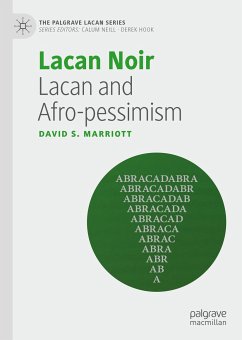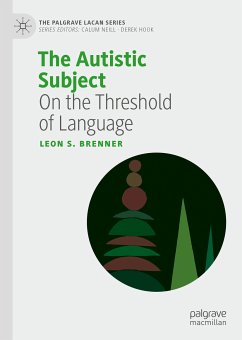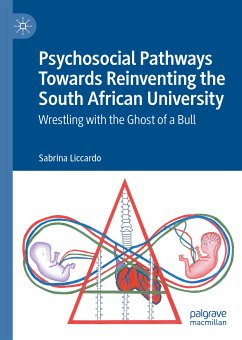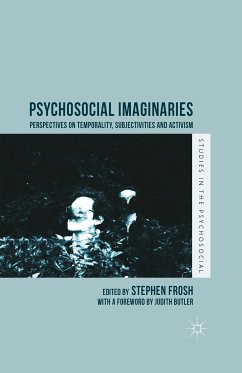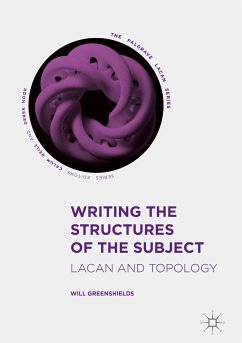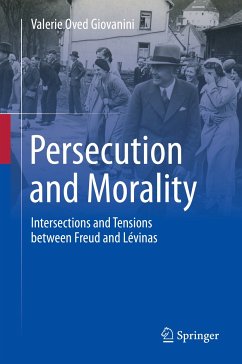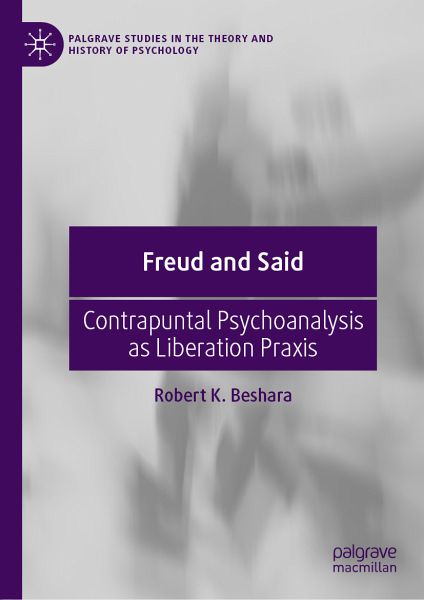
Freud and Said (eBook, PDF)
Contrapuntal Psychoanalysis as Liberation Praxis
Versandkostenfrei!
Sofort per Download lieferbar
88,95 €
inkl. MwSt.
Weitere Ausgaben:

PAYBACK Punkte
44 °P sammeln!
This book examines the theoretical links between Edward W. Said and Sigmund Freud as well the relationship between psychoanalysis, postcolonialism and decoloniality more broadly.The author begins by offering a comprehensive review of the literature on psychoanalysis and postcolonialism, which is contextualized within the apparatus of racialized capitalism. In the close analysis of the interconnections between the Freud and Said that follows, there is an attempt to decolonize the former and psychoanalyze the latter. He argues that decolonizing Freud does not mean canceling him; rather, he emplo...
This book examines the theoretical links between Edward W. Said and Sigmund Freud as well the relationship between psychoanalysis, postcolonialism and decoloniality more broadly.
The author begins by offering a comprehensive review of the literature on psychoanalysis and postcolonialism, which is contextualized within the apparatus of racialized capitalism. In the close analysis of the interconnections between the Freud and Said that follows, there is an attempt to decolonize the former and psychoanalyze the latter. He argues that decolonizing Freud does not mean canceling him; rather, he employs Freud's sharpest insights for our time, by extending his critique of modernity to coloniality. It is also advanced that psychoanalyzing Said does not mean psychologizing the man; instead the book's aim is to demonstrate the influence of psychoanalysis on Said's work. It is asserted that Said began with Freud, repressed him, and then Freud returned. Reading Freud and Said side byside allows for the theorization of what the author calls contrapuntal psychoanalysis as liberation praxis, which is discussed in-depth in the final chapters.
This book, which builds on the author's previous work, Decolonial Psychoanalysis, will be a valuable text to scholars and students from across the psychology discipline with an interest in Freud, Said and the broader relationship between psychoanalysis and colonialism.
The author begins by offering a comprehensive review of the literature on psychoanalysis and postcolonialism, which is contextualized within the apparatus of racialized capitalism. In the close analysis of the interconnections between the Freud and Said that follows, there is an attempt to decolonize the former and psychoanalyze the latter. He argues that decolonizing Freud does not mean canceling him; rather, he employs Freud's sharpest insights for our time, by extending his critique of modernity to coloniality. It is also advanced that psychoanalyzing Said does not mean psychologizing the man; instead the book's aim is to demonstrate the influence of psychoanalysis on Said's work. It is asserted that Said began with Freud, repressed him, and then Freud returned. Reading Freud and Said side byside allows for the theorization of what the author calls contrapuntal psychoanalysis as liberation praxis, which is discussed in-depth in the final chapters.
This book, which builds on the author's previous work, Decolonial Psychoanalysis, will be a valuable text to scholars and students from across the psychology discipline with an interest in Freud, Said and the broader relationship between psychoanalysis and colonialism.
Dieser Download kann aus rechtlichen Gründen nur mit Rechnungsadresse in A, B, BG, CY, CZ, D, DK, EW, E, FIN, F, GR, HR, H, IRL, I, LT, L, LR, M, NL, PL, P, R, S, SLO, SK ausgeliefert werden.



